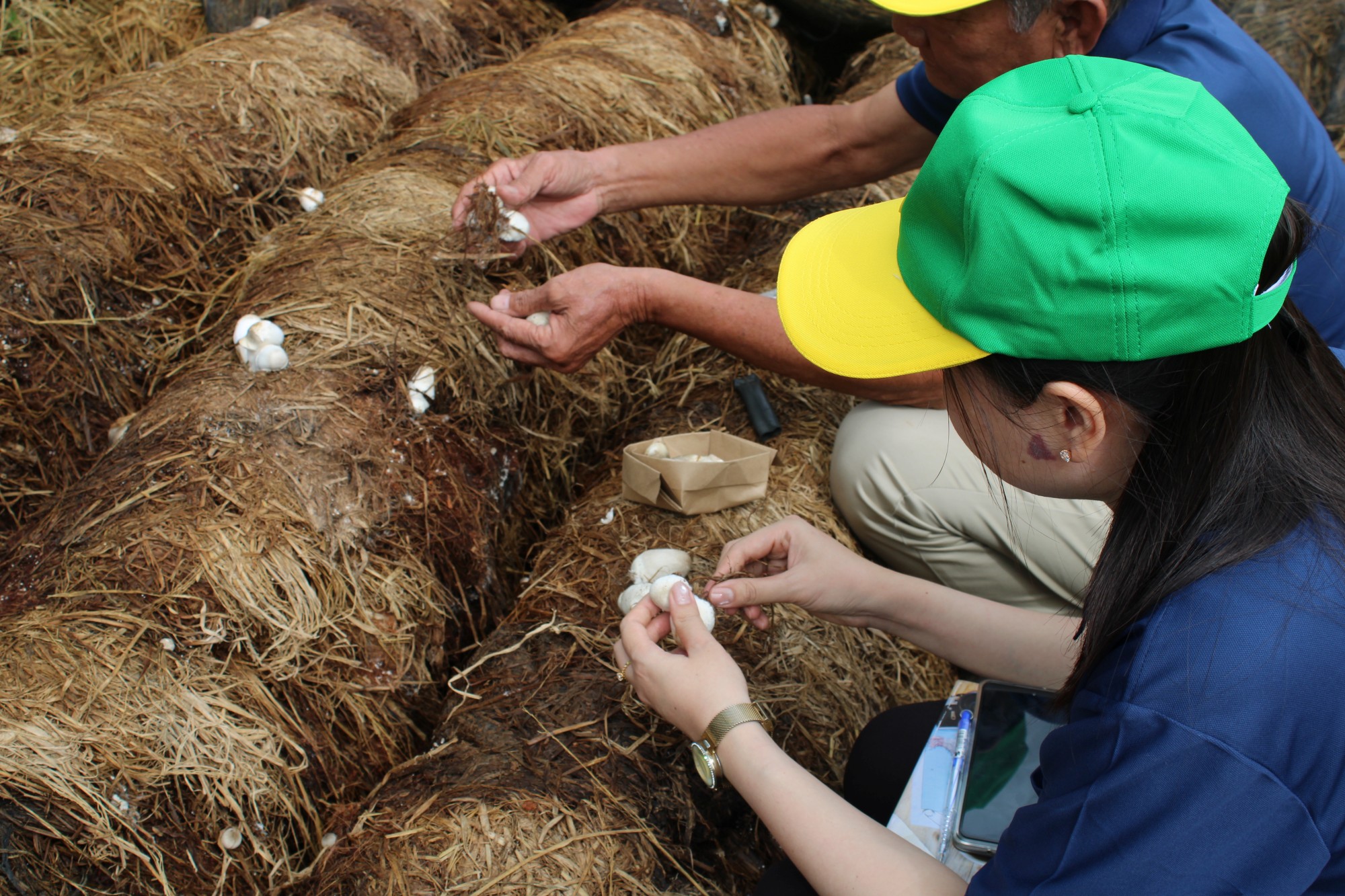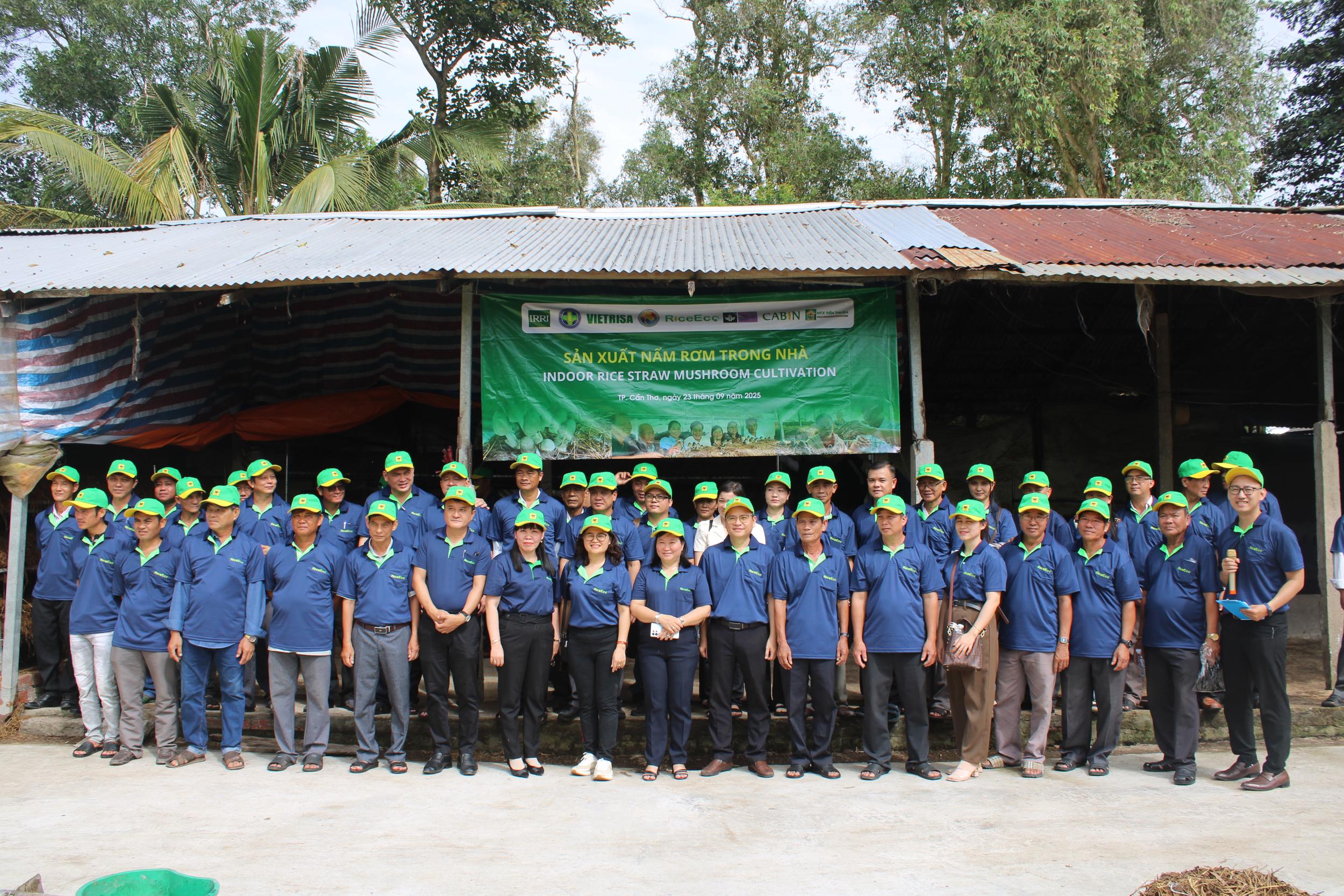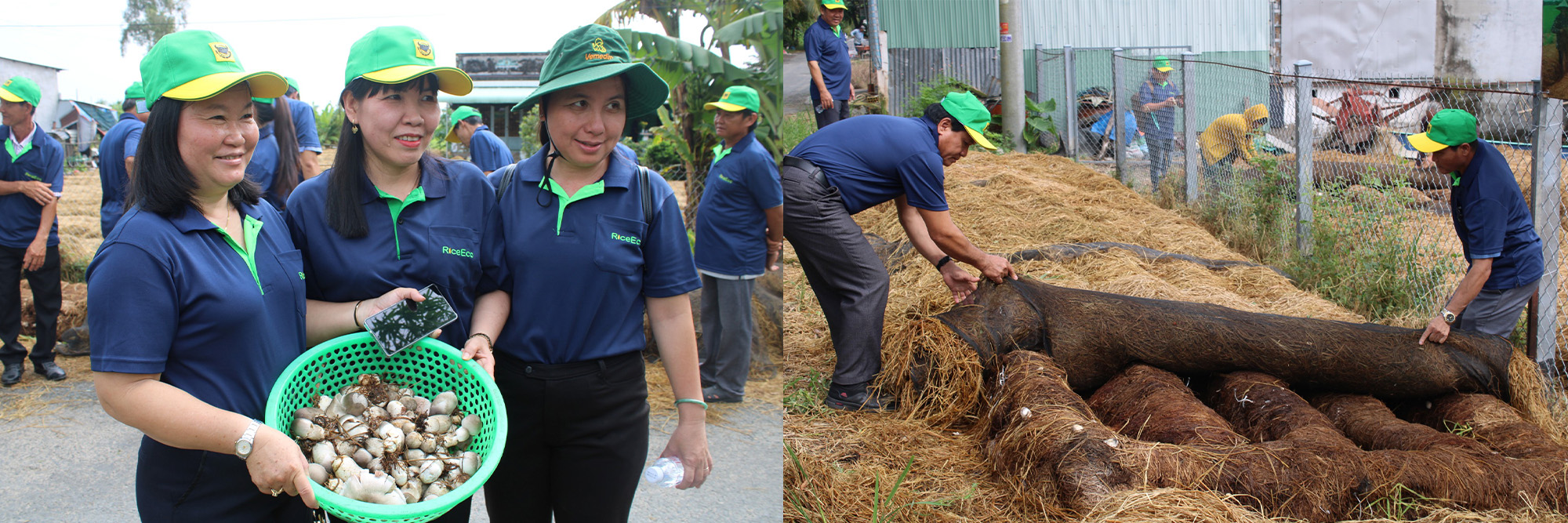From waste to wealth: Vietnam’s circular economy turns rice straw into farmer income boost

CAN THO, Vietnam (September 23, 2025) – Transforming rice straw from a climate burden into a stable source of income, a farmers’ field day recently showcased the rapid success of circular agriculture models in the Mekong Delta.
The event, officially a Farmers’ Field Day in Rice Straw Mushroom Cultivation, was organized by the Department of Crop Production and Plant Protection of Can Tho City in collaboration with the International Rice Research Institute (IRRI) and the Vietnam Rice Industry Association (VIETRISA). It aimed to promote straw-based circular economy applications under the "One Million Hectares of High-Quality and Low-Emission Rice Program," attracting approximately 300 farmers and delegates to the Tien Thuan Agricultural and Service Cooperative.
Participants witnessed a live demonstration of advanced techniques, including growing straw mushrooms, both indoors and outdoors, and mechanized technology for producing organic fertilizer from rice straw.

The festival presented compelling data from pilot models that illustrate the comprehensive economic and climate benefits of moving away from traditional straw burning. For instance, rice yield increased by using straw fertilizer compared to chemical fertilizer, and circular straw management models reduce an average of tons of equivalent per hectare compared to the traditional practice of burying straw.
Beyond climate mitigation and yield, the program’s impact extends through training events and improving the capacity of farmers and extension officers. These initiatives led to the successful formation and operation of five sustainable business models that have created jobs and helped participating farmers increase their income compared to rice-only cultivation.
The success was clearly demonstrated at the Tien Thuan Cooperative, where representative Mr. Nguyen Cao Khai shared his enthusiasm. "Before, my family used to just burn straw. Now, we know how to cultivate mushrooms and compost organic fertilizer from straw. We not only have more income and better soil, but importantly, there is no more smoke and dust," he said.
Mr. Khai also proudly shared that as a pilot farm for this program, the cooperative demonstrated several key benefits, including the monthly production of 50 tons of organic fertilizer, construction of a 500 m² production area, investments in product packaging and branding, and a yield of 750–900 kg of straw mushrooms per 40–42 day crop cycle, using 500-600 rolls of straw.
Dr. Nguyen Van Hung, a scientist at IRRI Vietnam and lead of the research projects, related to rice straw-based circular economy, noted the significant shift in farmer mindset. "After seeing the tangible benefits of circular approaches, such as increased income and reduced costs, their attitude has become more receptive and even enthusiastic," he added.
To sustain and enhance this progress, Dr. Hung emphasized that local governments and the agricultural sector must prioritize several key actions:
- creating supportive policies and incentives to help farmers access financing for straw collection and processing machinery
- strengthening cooperatives and establishing robust value chains that connect farmers with businesses using straw for products like animal feed, fertilizer, or bio-energy
- utilizing digital tools like the IRRI-developed Easy Farm App to streamline transactions between producers and buyers
- providing continuous technical support through knowledge-sharing hubs like IRRI’s E-extension.
"The field day is an important milestone marking the maturity of the circular agriculture model. The results achieved far exceed initial expectations, creating a strong motivation for us to expand and perfect these models throughout the city," said Ms. Pham Thi Minh Hieu, Head of the Department of Crop Production and Plant Protection of Can Tho City, affirming the commitment of the local government agency.
Echoing this remark, Mr. Le Thanh Tung, Permanent Vice President of VIETRISA, concluded, "I have never seen such a strong and positive change in rice production. From regularly burning straw causing pollution, farmers now know how to turn 'by-products' into a stable source of income. This contributes to a positive direction for the future of Vietnam's rice production – green, responsible, smart and sustainable."
This work is part of the USDA-funded Fertilize Right Project, MKCF-funded Rice Straw-Based Circular Economy for Improved Biodiversity and Sustainability Project, and the CGIAR Scaling for Impact Program.
